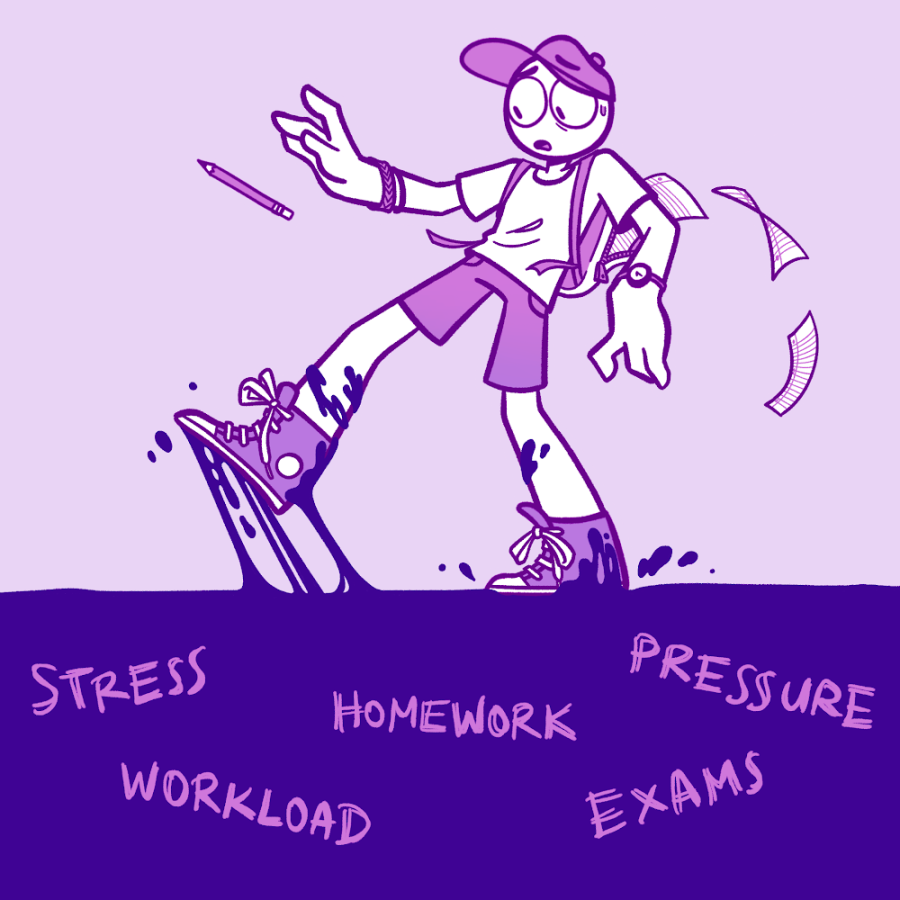A Case of AP Elitism at Rindge
July 20, 2023
Almost all CRLS students have, at some point, been sucked into the AP pipeline—one that very few make it out of. An unlucky few fell victim to their first AP class in freshman year, while the rest were drawn in by gateway classes like AP Chemistry and AP US History that gave them their first hit of the most addictive drug: academic validation. For the low, low price of your own self-preservation and mental health, you too can get a hit! There is simply not enough time in the day to maintain good mental health and AP coursework, and the latter almost always takes priority. It is no secret that choosing an AP class is essentially signing onto an unreasonable amount of homework, stress, and a terrible sleep schedule, so why do so many students still take them?
It’s no doubt that our proximity to colleges like Harvard and MIT is a contributing factor to this phenomenon. Vying for the attention of these esteemed institutions, CRLS students overwhelm themselves with difficult classes to stand out from their peers. This phenomenon heavily influences the toxic culture at CRLS, pressuring students to fill their schedules with APs without thinking about the course’s usefulness, or worse, the mental toll that comes with it. While other schools offer AP classes, it’s rare that their students feel the need to take as many as our students do.
With the pride that comes with “surviving” a hard class, any criticism towards AP culture is easily diminished to an implication of their lack of academic knowledge. There is an arrogant attitude shared by many AP students, creating an uncomfortable dichotomy between those who take AP classes and those who don’t. This culture bases intelligence solely on an individual’s performance on a standardized test—an issue that extends to MCAS and SATs. It is an incredibly two-dimensional way of thinking to believe tests to be the only metric for measuring knowledge. Intelligence is shown in a number of ways, and tests are only one facet of understanding.
Unmistakably, there is a pattern in the types of people that take AP classes: most of the students are white. White students are often—because of the way that systemic racism forces people of color into poverty—in better socioeconomic positions. This creates more opportunities for them to pay for costly AP tests, any needed materials, support or tutoring, and additional time that comes with the absence of other financial responsibilities.
That is not to say that students should not take any AP classes, but that they aren’t a one-size-fits-all pathway to a comprehensive education. Normal-level and honors classes can be just as academically rigorous, yet they go completely unappreciated. These courses have many unrecognized advantages over APs, as they are able to go much more in-depth into the curriculum without the “teaching for the test” model that AP classes follow. AP classes have warped CRLS students into believing that learning has to be stressful in order to be rewarding. However, no class is more important than your own mental well-being.
This article also appears in our May/June 2023 print edition.











